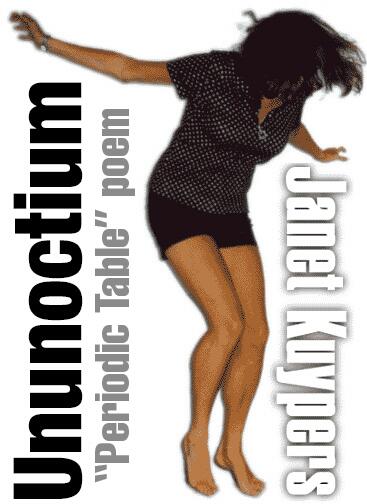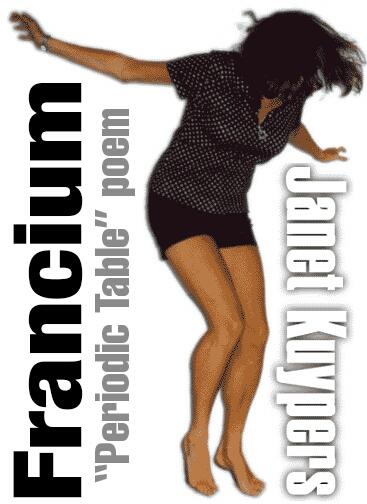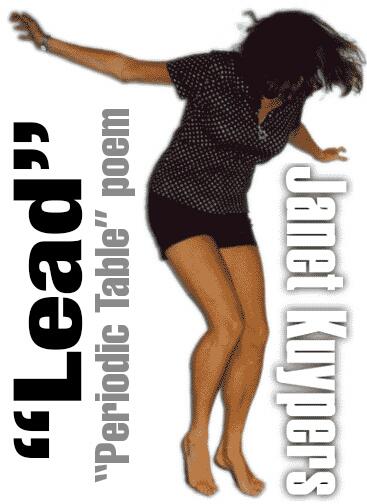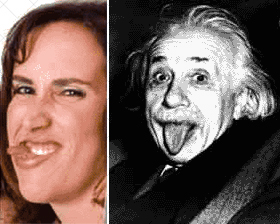Ununoctium
Janet Kuypers

from the “ Periodic Table of Poetry” series (#118, Uuo)
I first only heard of you a decade ago.
You seemed so reactive, so unstable,
and yet I was so attracted to you.
I should have known better.
I should have known that
your radioactive personality would
cause your destruction, so I guess
I’m glad I’m not around to see it.
I have only seen you three or four times
since you started to self-destruct,
so from afar I can only guess
what you’re made of, or what you can do.
But still, I can’t get you out of my mind,
so I’m left here to guess about you,
based on what little I could ever infer
about you. This is all you leave me.
When I saw you before, you seemed
kind, and noble when you were with me…
But that was before I saw what you
were made of, how hard you could be.
So much emanated from you with me,
but you’ve systematically shattered
any preconceived notions of who you are,
that I don’t even know what to believe.
You’re that explosive, and I’ve been
unsuccessful in any attempts to synthesize
with you… It’s funny, you seem
like you want to be discovered,
but I can only predict, calculate, or
extrapolate what I think you can do.
If only you would let me crack your shell
so I could see what you’re made of…




